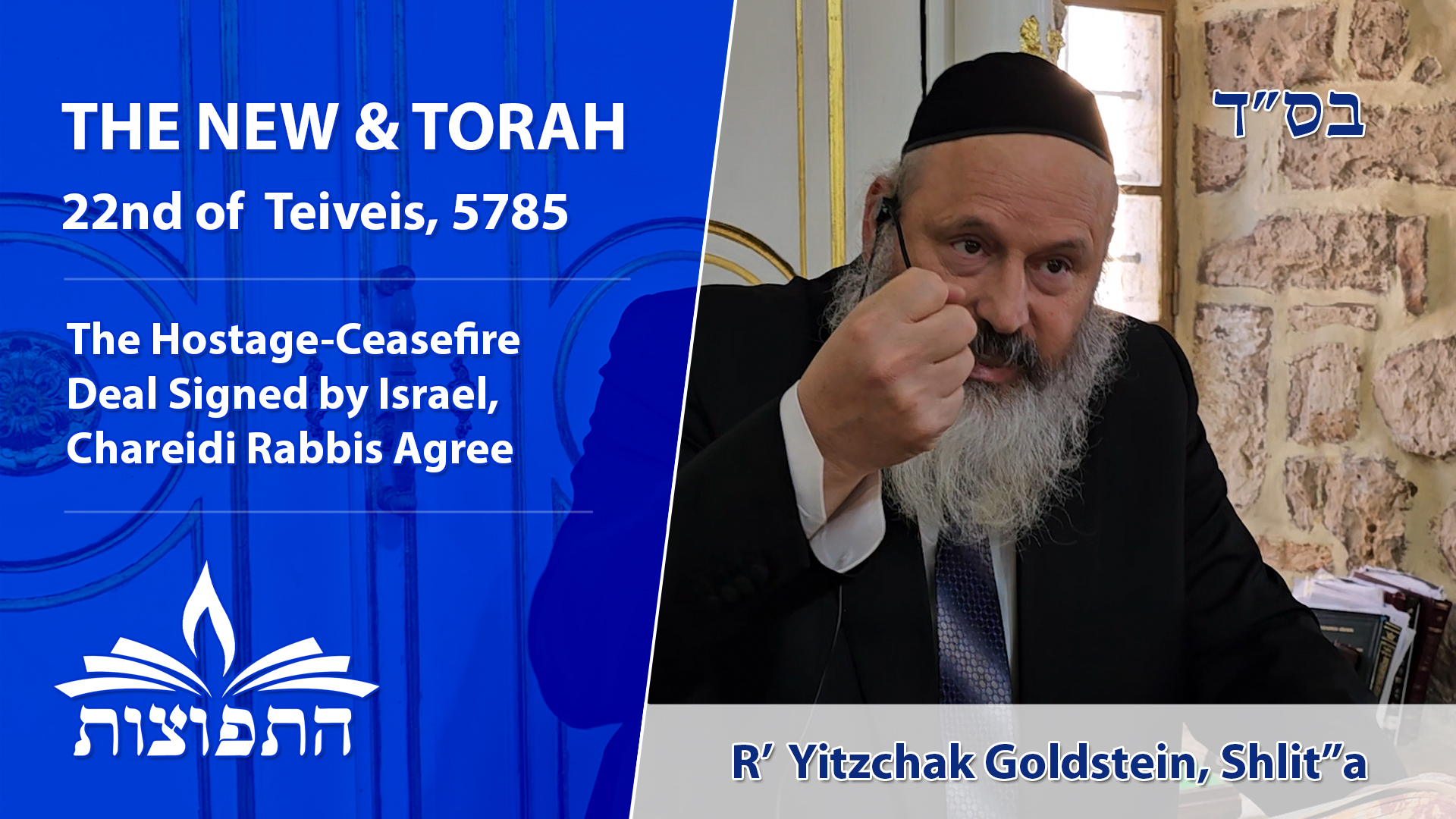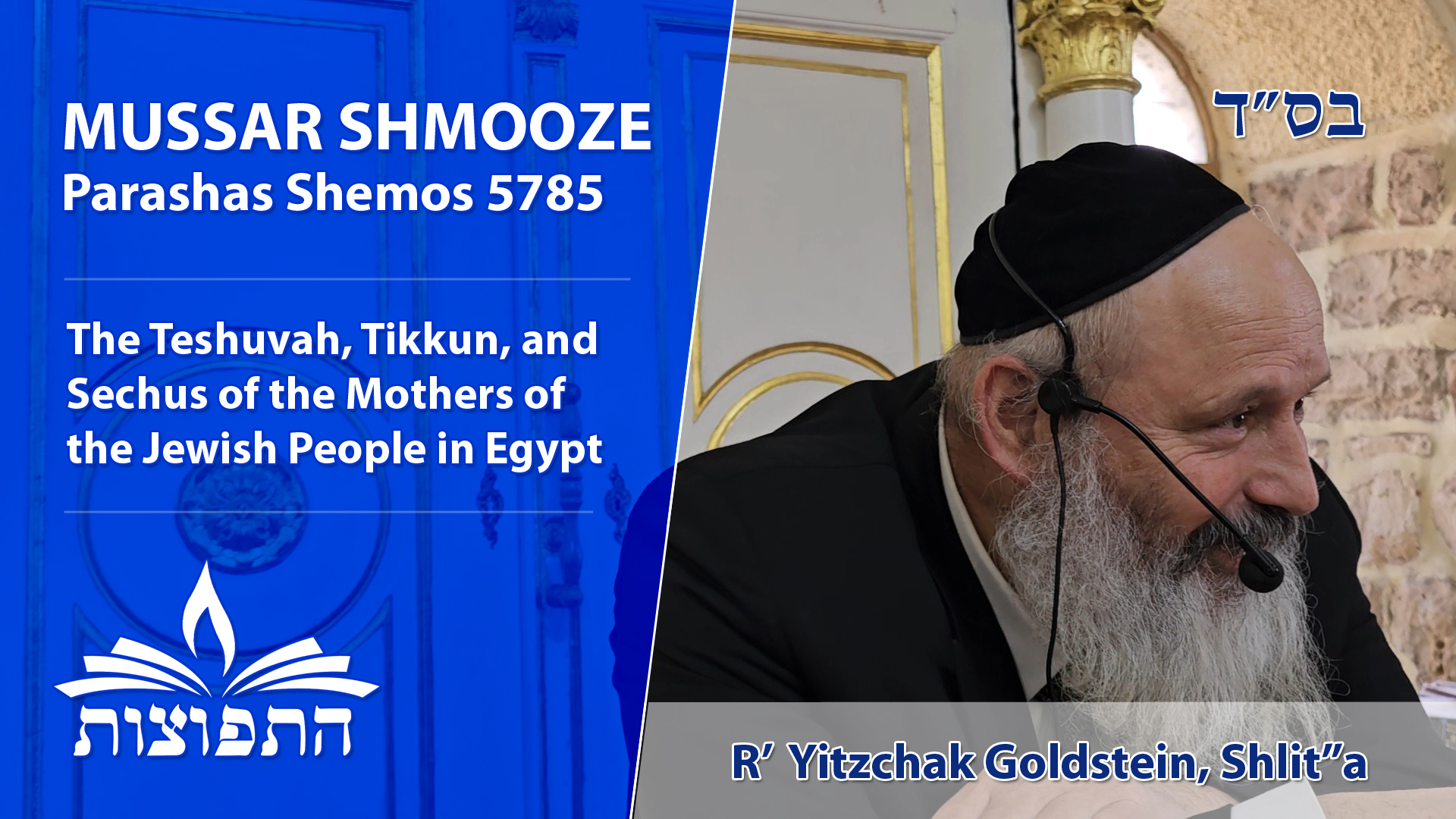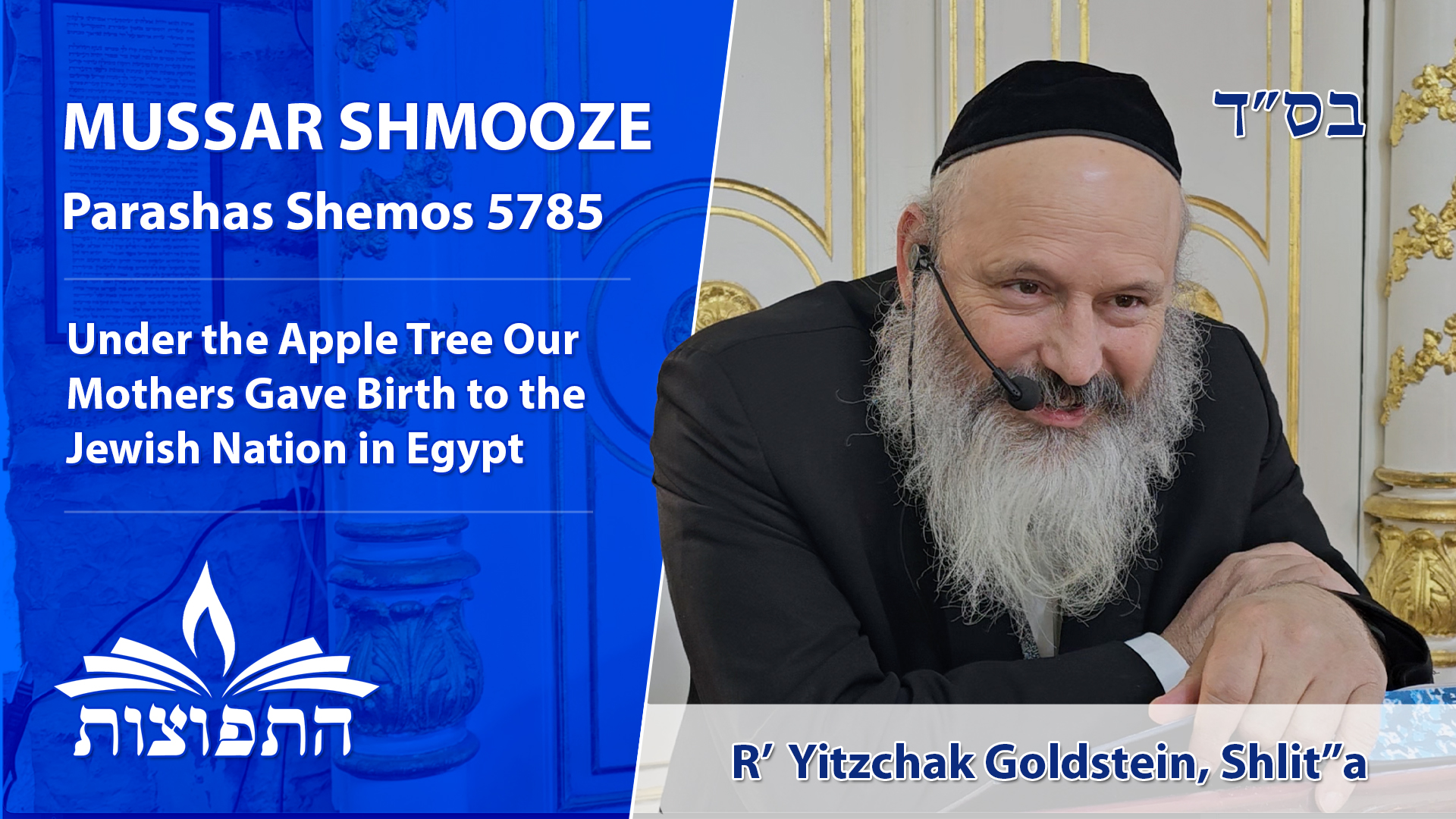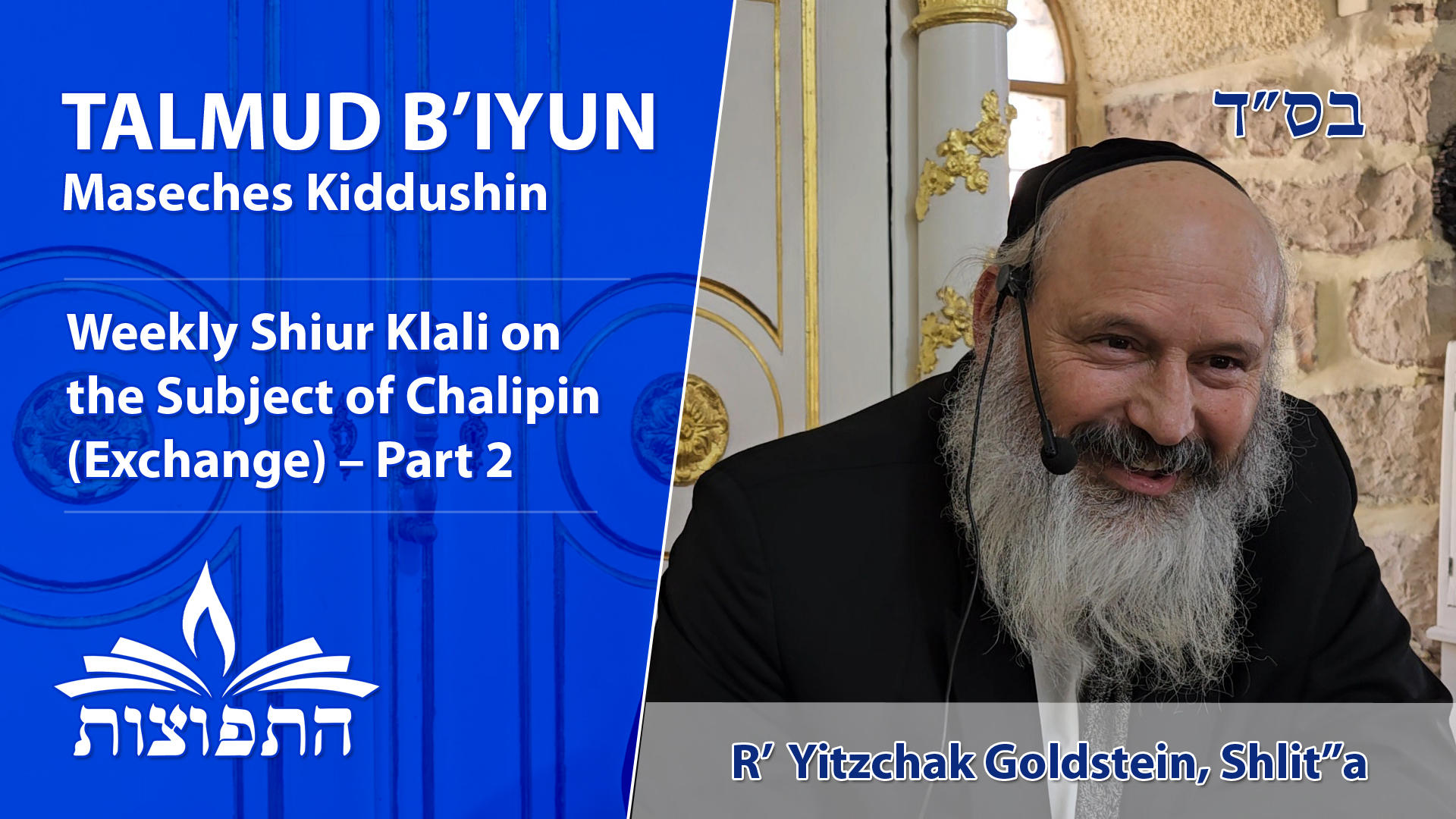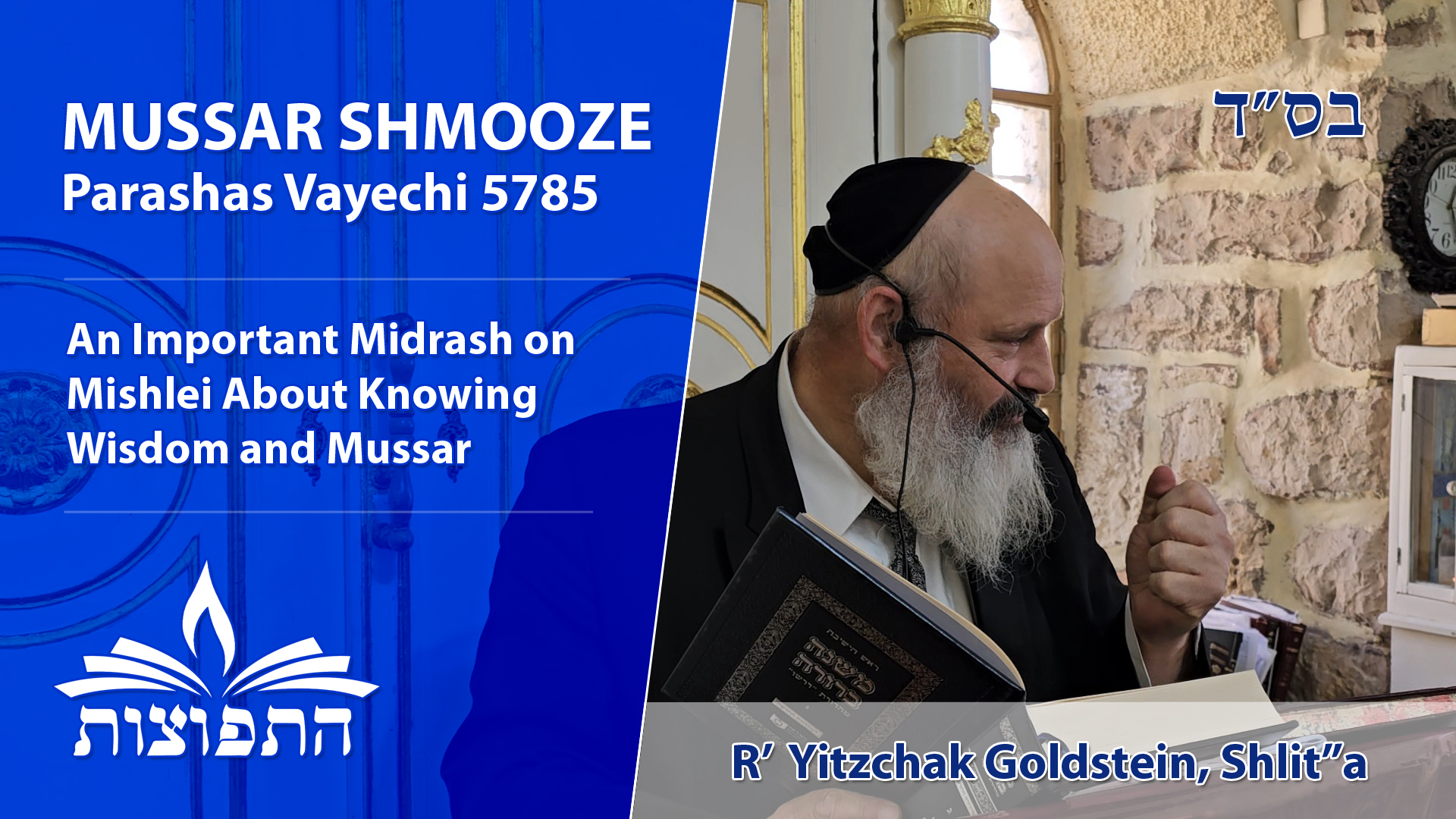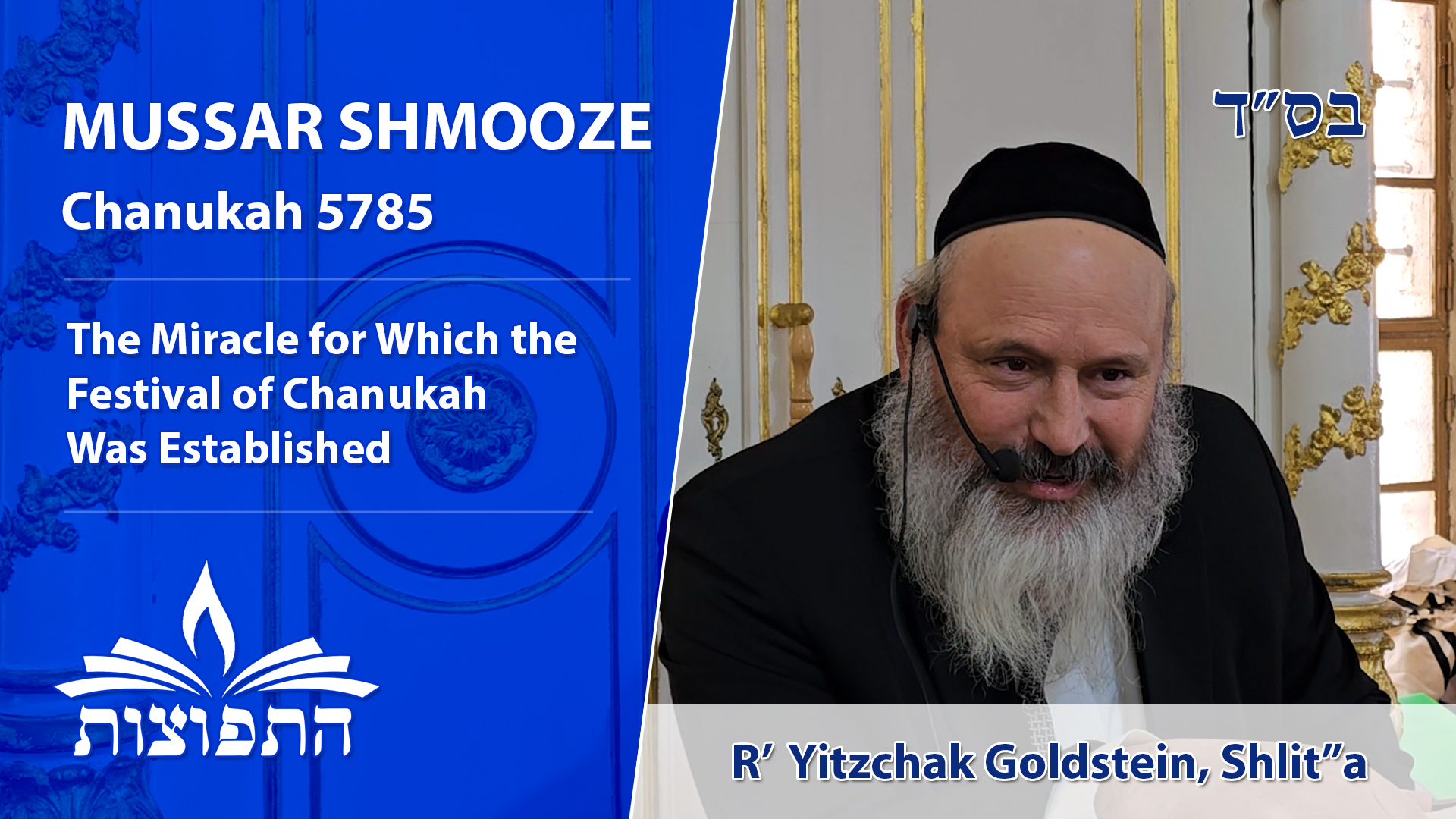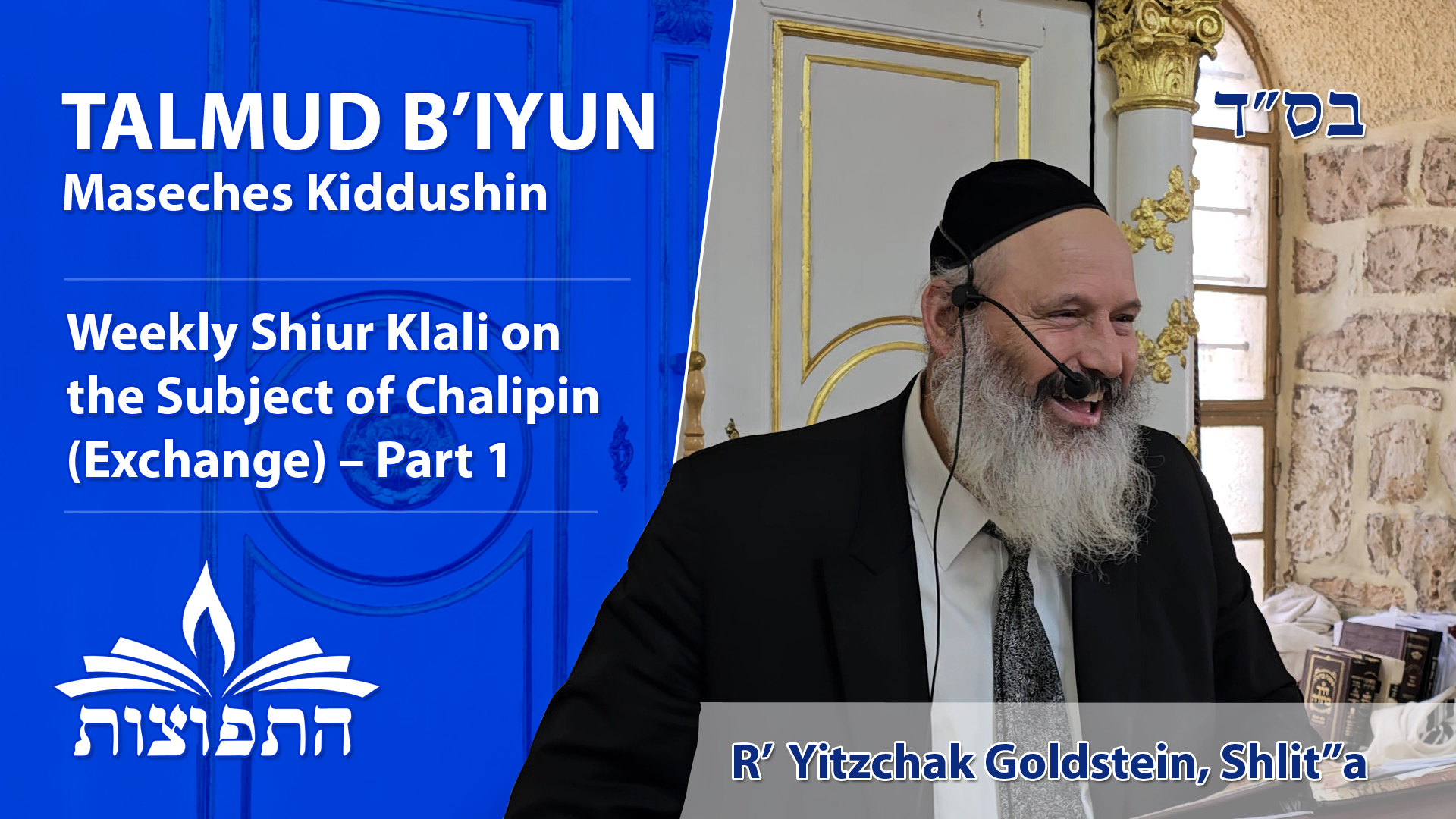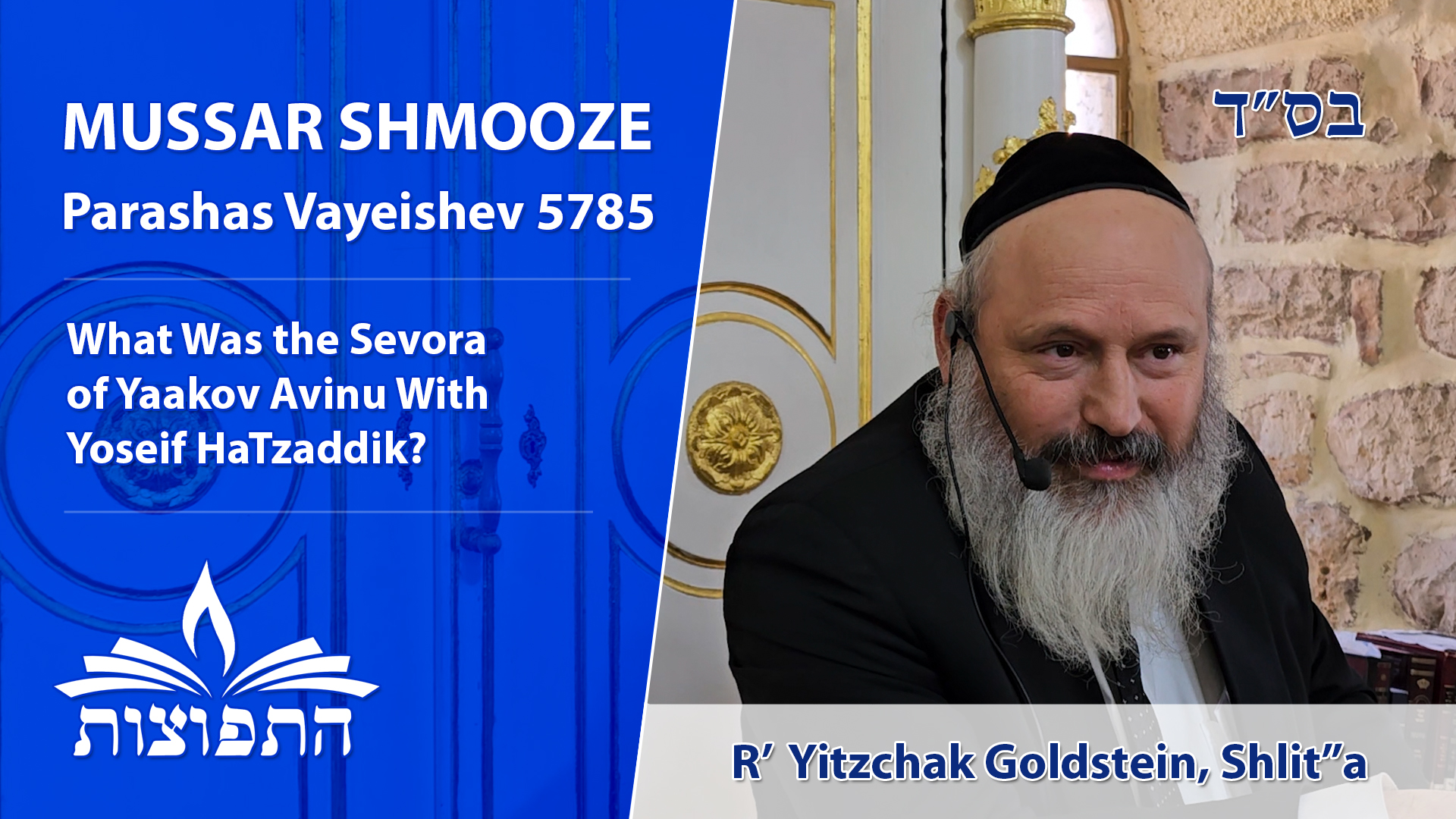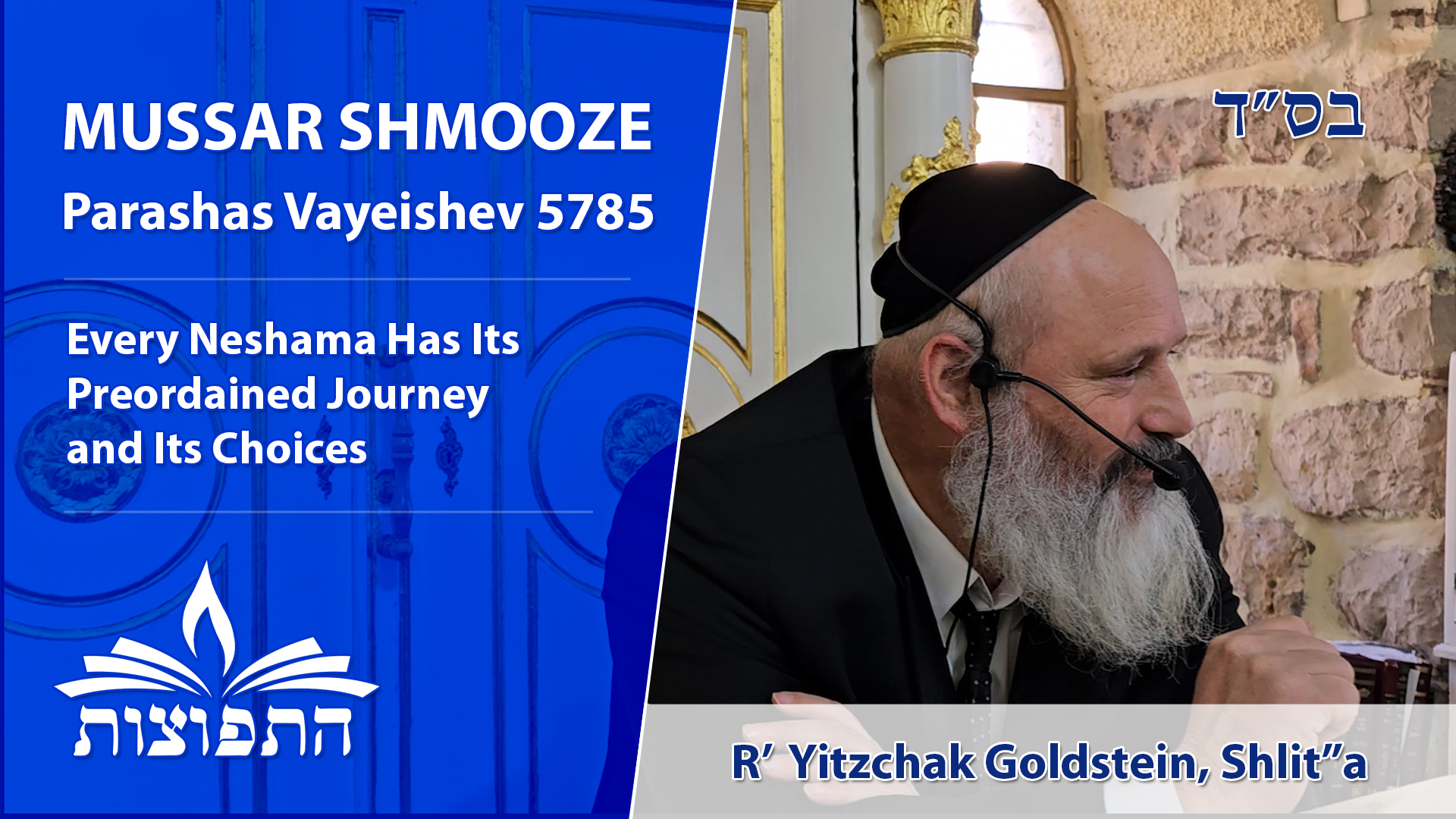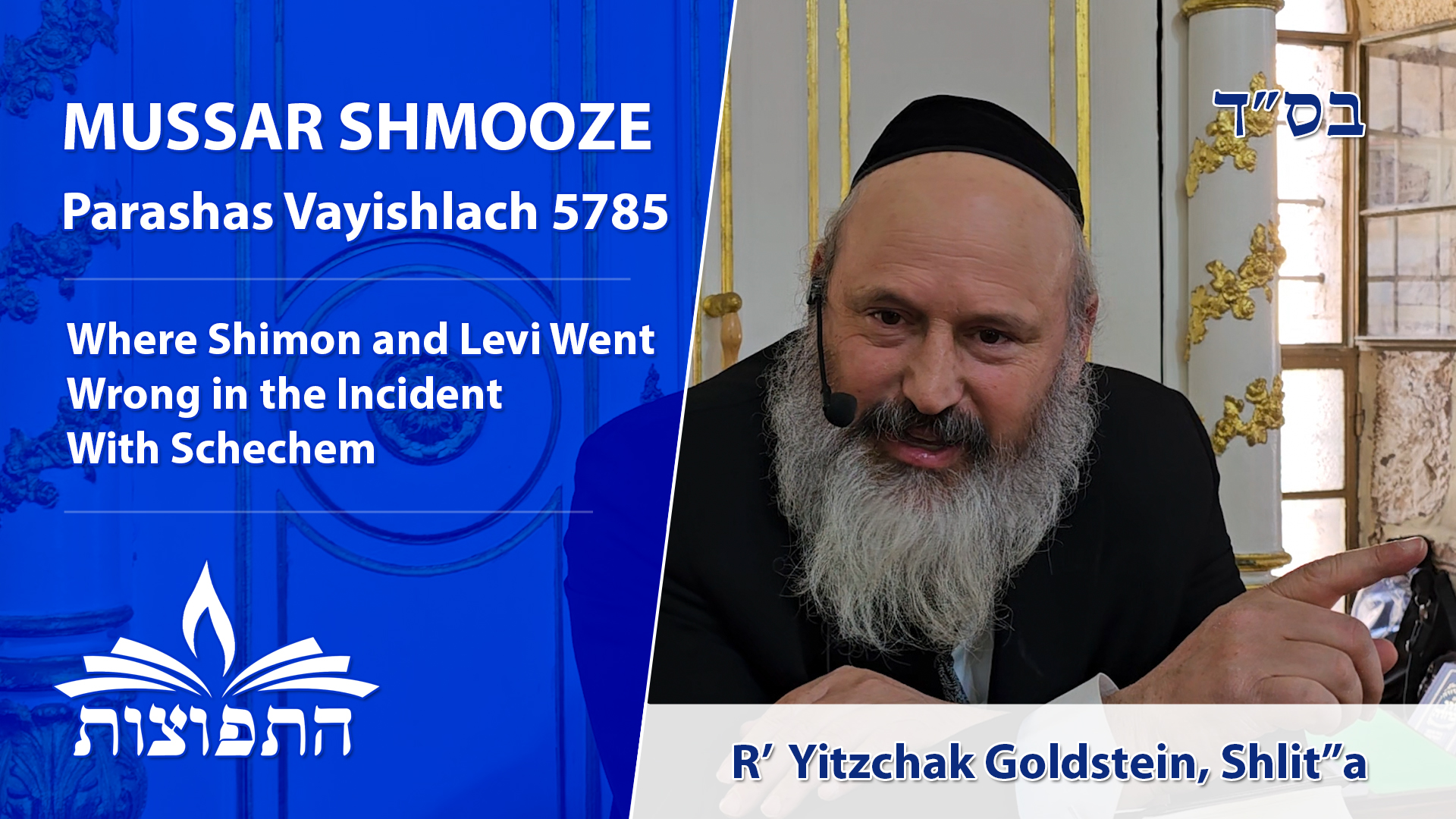The Rosh Yeshiva speaks about the recent news about the hostage-ceasfire deal signed by the State of Israel and Hamas and why Chareidi Rabbis agree in the light of Torah sources.
The Rosh Yeshiva adds to the his mussar shiur from earlier in the week about the teshuvah (repentance), tikkun (rectification), and Sechus (Merit) of the mother of the Jewish people in Mitzrayim (Egypt), rooted in their great emunah (faith) and bitachon (trust) in HaShem and His promise.
The Rosh Yeshiva speaks about the pasuk (verse) in Parashas Shemos (Exodus 1:7) that remarkably praises the mothers of the Jewish people in Mitzrayim (Egypt) using the language of sheratzim (insects), and what we should learn from it about our work in bringing Mashiach (the Messiah) by having Jewish children.
The Rosh Yeshiva’s second weekly Talmud B’Iyun (In-Depth) Shiur Klali on the sugiya (subject) of Chalipin (Exchange), Maseches Kiddushin (part 9 in the whole, daily series), which ties together and concludes the learning on the sugiya for the week.
Torah From Zion An Important Midrash on Mishlei About Knowing Wisdom and Mussar January 9th, 2025 / 9th of Teiveis, 5784 https://www.youtube.com/watch?v=d9WBcB6C4RE The Rosh Yeshiva speaks about an important midrash on a pasuk (verse) in Mishlei (Proverbs) about knowing chachmah …
The Rosh Yeshiva speaks about the miracle for which the Festival of Chanukah was established and its significance.
The Rosh Yeshiva’s weekly Talmud B’Iyun (In-Depth) Shiur Klali, on the sugiya (subject) of Chalipin (Exchange), Maseches Kiddushin, which ties together and concludes the learning on the sugiya for the week.
The Rosh Yeshiva speaks about the preference Ya’akov (Jacob) showed to Yoseif (Joseph) over his other sons, and how it led to the galus (exile) in Mitzrayim (Egypt), why he did it anyway, and what we should learn from it in regards to raising children.
The Rosh Yeshiva speaks about the story of Ya’akov (Jacob) and Yoseif (Joseph) and the reality that each of us have our own unique journeys in this world, some of which is preordained and some of which we get to choose, and how to be happy with the life that HaShem has given us with emunah (“faith”) and bitachon (trust).
The Rosh Yeshiva speaks about the incident in Parashas Vayishlach with Ya’akov’s (Jacob’s) daughter Dinah and Shechem, and the response of Shimon and Levi, where they went wrong, what they should have done, and what we should learn from this.
